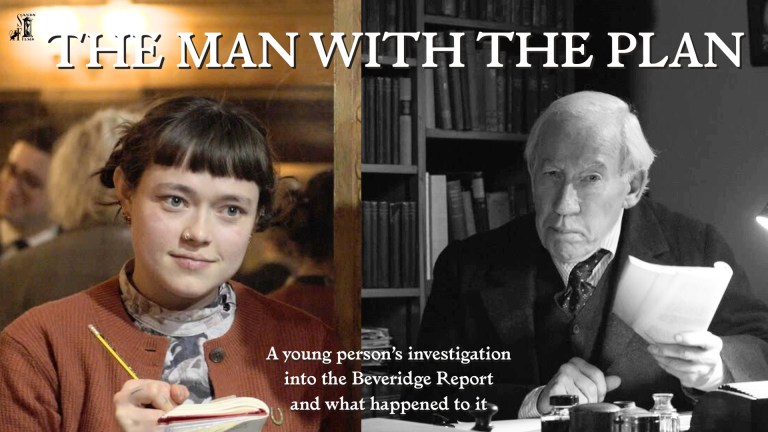Both the cost of living and housing crisis mean that private rents and deposits are pushed even further out of reach for most people leaving prison who have very little and are unlikely to be employed. That’s before they have to navigate the stigma and prejudice that people with a criminal record face when it comes to finding a rental property.
Seeking housing through the local authority also throws up barriers for prison leavers. People leaving prison can be incorrectly classed as making themselves intentionally homeless or have a lack of a local connection, meaning they are low priority for support from local authorities. Even if they are eligible for support with housing they join ever-growing waiting lists and as the majority of prison leavers are single men they often aren’t seen as a priority for housing.
There has also been criticism of the support that people receive in prison to help them line up housing on release. In its latest report, HM Inspectorate of Prisons rated only 19% of the prisons they inspected as ‘good’ for rehabilitation and release planning. In a prison estate that is overcrowded and overstretched, there often just isn’t the time, skills or capacity to solve the difficult problem of housing for many people
leaving prison.
Coming out of prison into homelessness is devastating for the individuals who in most cases just wants to start again and move on with their lives. But it also has a wider impact.
Read more:
When someone comes out of prison homeless they are twice as likely to reoffend than someone who comes out into settled accommodation. This increase in homeless prison leavers is likely to be matched by an increase in reoffending, filling up prison cells faster than the government policy can free them up. We will never fix the prison capacity crisis until we fix the problem of where to house people when they get out of prison.
Advertising helps fund Big Issue’s mission to end poverty
There has always been a strong link between homelessness and the criminal justice system, it’s estimated over half of people who are rough sleeping have been in contact with the criminal justice system. This is not surprising, as without somewhere to live people stand little chance of tackling the issues that drive much offending – substance misuse, mental health issues, poverty.
The Independent Sentencing Review proposed changes, that the government has largely accepted, which will free up 10,000 prison places – by releasing some people earlier for good behaviour while in prison and introducing a presumption against short prison sentences. It’s vital that this is done to tackle the overcrowding crisis in prisons, but it is important to recognise that this will lead to up to 10,000 extra people being managed in the community rather than in prison. We must ensure that accommodation is available, as otherwise we just exchange the crisis in our prisons for a crisis in our communities, and that fails the individuals caught up in the system but also fails all of our communities.
Giving people a community sentence and expecting them to complete it while they live on the streets is
setting people up to fail. Day-to-day survival is hard when you are homeless, to also expect people to also deal with the issues that lead to their offending is unrealistic.
We need urgent action to address the issue of prison leaver homelessness. We need more housing across the board but must include specific housing for people coming out of prison and serving community sentences. Beyond short-term accommodation on release from prison we need to ensure that there is move-on accommodation so that people can progress into a stable and long-term home. This supports people to move on with their lives while also ensuring that transitional accommodation is available for those that need it.
People in the criminal justice system often have complex lives, many have suffered trauma, have mental health issues, substance abuse problems. It is vital to work with people to address these issues in order for them to move on with their lives and deal with the problems which have led to their offending in the first place. To do this properly and to do it for everyone who needs it, there must be more funding available.
Reversing the trend of increasing numbers of people coming out of prison homeless won’t be an overnight fix, it won’t be cheap and it won’t be easy, but it is essential. If we want to free up places in prison, if we want to reduce reoffending, if we want to give people the best chance to turn their lives around then we need to invest in getting it right.
Advertising helps fund Big Issue’s mission to end poverty
‘It was a never-ending cycle’
Back in 2023, Big Issue founder John Bird led a campaign to stop prisoners being released on Fridays.
A tweak under the Offenders (Day of Release from Detention) Act 2023 allowed prison governors to release prisoners on Wednesday or Thursday if they have mental health issues, substance abuse problems or a long distance to travel home.
The thinking was simple: if a prisoner is released on a Friday, they may not be able to get housed or access services until Monday, in which time they may have to turn to reoffending to survive.
The cycle of homelessness and prison is one that criminal justice charity Nacro is dedicated to breaking. Here are two examples from people they have supported.
Kayley grew up around drugs, with her parents struggling with addiction. At 16 she started taking drugs, drinking and getting involved in crime. Before long she was addicted to crack and heroin and was sofa surfing. She was in and out of prison, being sentenced eight times.
Every time she left prison, she was released back into her local area, without support, either into homelessness or unsuitable housing. She fell directly back into addiction every time and started reoffending.
Advertising helps fund Big Issue’s mission to end poverty
“It was a never-ending cycle,” she says. “I went into prison, came out, reoffended and went back.” Kayley left prison for the last time and was housed with Nacro. “It’s made a big difference,” she says. “I’m housed somewhere else, I’ve got support all around me and I wanted to change.
Terry says: “The biggest problem is not having a roof over your head. So many people come straight out
of prison with nowhere to live and go straight on the streets.
“When you come out, there’s nothing. No phone, no money, no ID, and if you don’t have someone helping you – you’re alone. I’d lost weight. My jeans didn’t fit and I didn’t have a belt. It was freezing and I had no jumper. Yet I couldn’t get my advance payment because I didn’t have ID. We’re being set up to fail – 99% will go back to prison because they have no choice.”
Do you have a story to tell or opinions to share about this? Get in touch and tell us more.
Reader-funded since 1991 – Big Issue brings you trustworthy journalism that drives real change.
Every day, our journalists dig deeper, speaking up for those society overlooks.
Advertising helps fund Big Issue’s mission to end poverty
Could you help us keep doing this vital work? Support our journalism from £5 a month.






